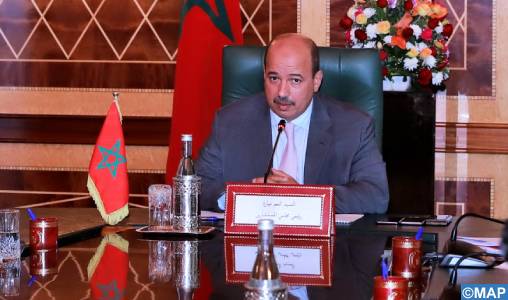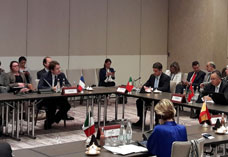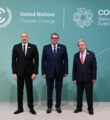Upper House Speaker Urges Transition to Green Economy in Africa, Arab World
Ezulwini (Eswatini) – The Speaker of the House of Councillors, Enaam Mayara, said on Thursday in Ezulwini, south of the Eswatini capital Mbabane, that the transition to a green economy in Africa and the Arab world is an urgent need to reduce the risks of climate change-related shocks.
Speaking at the opening of the 10th consultative meeting of the Association of Senates, Shura and Equivalent Councils of Africa and the Arab World (ASSECAA), Mayara, who is also the organization’s president, said Africa and the Arab region are facing an environmental crisis characterized by extreme weather conditions such as heat waves, floods and droughts.
“This crisis, which threatens the loss of biodiversity of ecosystems essential to human existence, is not only an environmental problem, but also a social and economic problem,” he warned.
In this regard, he stressed that the international community is advocating a new approach based on the green economy, including redirecting capital to invest in renewable energy sectors and reducing carbon emissions.
Recalling that the Arab-African economy faces a major challenge represented by the high cost of transition to low-carbon economies, he said that rapid progress in the field of renewable energy technologies makes the transition to a green economy possible.
In this context, Mayara noted that several Arab and African countries have realized the importance of the green economy and its potential, thus launching a strategic transformation process towards an environmentally friendly economic model.
On the other hand, he considered that “this requires intensive efforts from all countries, paying special attention to rural development and the water sector, adopting cleaner production techniques and environmental standards in construction, as well as ensuring environmentally friendly waste management.”
Similarly, he said that foreign investment in the various sectors of the green economy should be encouraged and attractive incentives such as tax breaks, credit facilities and customs exemptions should be provided.














